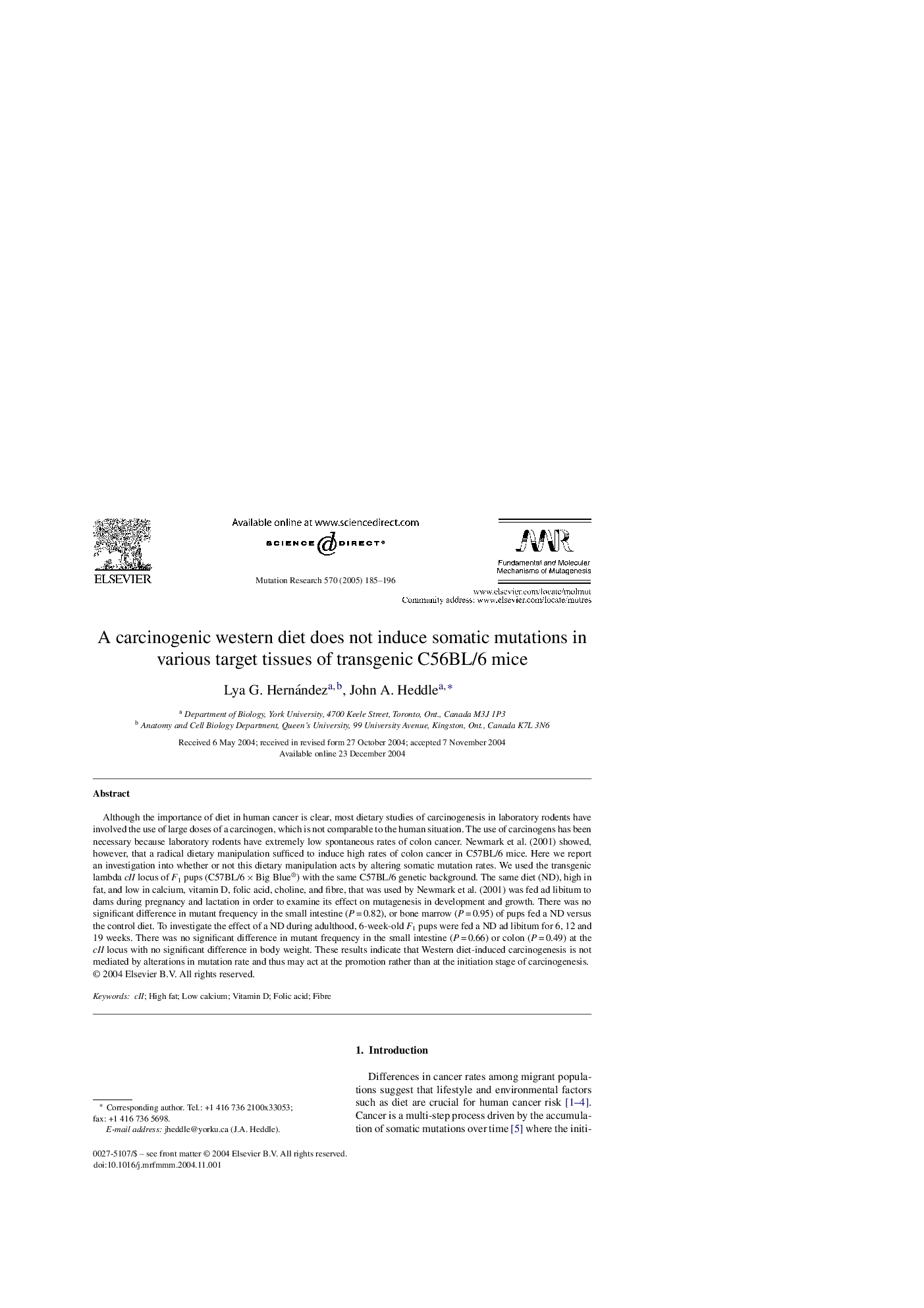| Article ID | Journal | Published Year | Pages | File Type |
|---|---|---|---|---|
| 9909171 | Mutation Research/Fundamental and Molecular Mechanisms of Mutagenesis | 2005 | 12 Pages |
Abstract
Although the importance of diet in human cancer is clear, most dietary studies of carcinogenesis in laboratory rodents have involved the use of large doses of a carcinogen, which is not comparable to the human situation. The use of carcinogens has been necessary because laboratory rodents have extremely low spontaneous rates of colon cancer. Newmark et al. (2001) showed, however, that a radical dietary manipulation sufficed to induce high rates of colon cancer in C57BL/6 mice. Here we report an investigation into whether or not this dietary manipulation acts by altering somatic mutation rates. We used the transgenic lambda cII locus of F1 pups (C57BL/6Â ÃÂ Big Blue®) with the same C57BL/6 genetic background. The same diet (ND), high in fat, and low in calcium, vitamin D, folic acid, choline, and fibre, that was used by Newmark et al. (2001) was fed ad libitum to dams during pregnancy and lactation in order to examine its effect on mutagenesis in development and growth. There was no significant difference in mutant frequency in the small intestine (PÂ =Â 0.82), or bone marrow (PÂ =Â 0.95) of pups fed a ND versus the control diet. To investigate the effect of a ND during adulthood, 6-week-old F1 pups were fed a ND ad libitum for 6, 12 and 19 weeks. There was no significant difference in mutant frequency in the small intestine (PÂ =Â 0.66) or colon (PÂ =Â 0.49) at the cII locus with no significant difference in body weight. These results indicate that Western diet-induced carcinogenesis is not mediated by alterations in mutation rate and thus may act at the promotion rather than at the initiation stage of carcinogenesis.
Related Topics
Life Sciences
Biochemistry, Genetics and Molecular Biology
Cancer Research
Authors
Lya G. Hernández, John A. Heddle,
